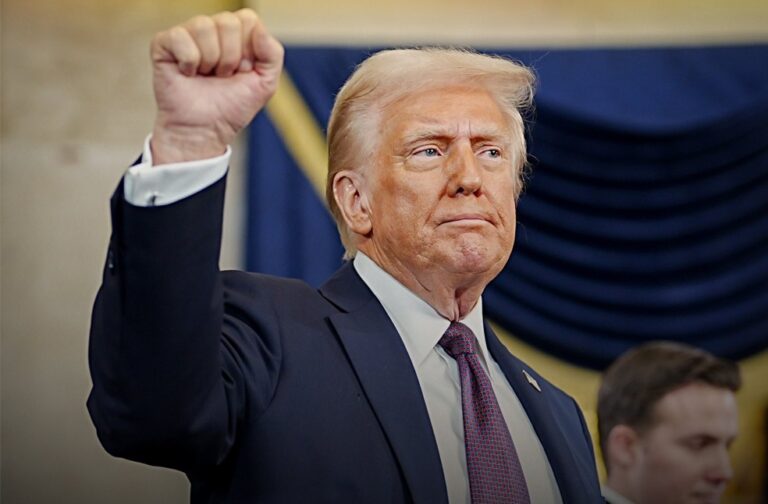Washington DC: US President Donald Trump is set to impose tariffs starting Saturday,1st of February, with 25% duties on Mexico and Canada and a 10% tariff on China, according to the White House.
Trump specified that Canadian oil would face lower tariffs of 10%, effective February 18, and stated his intention to impose tariffs on the European Union in the future, accusing the bloc of not treating the US well.
White House Press Secretary Karoline Leavitt explained the tariffs on Canada and Mexico as a response to the illegal fentanyl trade, which has contributed to the deaths of tens of millions of Americans. Trump has also repeatedly cited undocumented migration and trade deficits with neighboring countries as additional reasons for the tariffs.
Leavitt emphasized, “These are promises made and promises kept by the President,” noting Trump’s earlier campaign pledges. Trump had previously threatened tariffs of up to 60% on Chinese goods, though he refrained from taking immediate action upon his return to office, instead ordering a study of the issue.
US imports from China have stagnated since 2018, a trend economists attribute to Trump’s escalating tariffs during his first term. China, along with Canada and Mexico, are the top three US trading partners, comprising 40% of US goods imports. Experts warn that the new tariffs could ignite a major trade war, leading to higher prices in the US.
PRESIDENT TRUMP: "I had almost no inflation and yet I charged hundreds of millions of dollars of tariffs to countries… I had almost no inflation and took in $600M from other countries. Tariffs don't cause inflation. They cause success." pic.twitter.com/haw8rWlWPr
— Rapid Response 47 (@RapidResponse47) January 31, 2025
In Canada, Prime Minister Justin Trudeau commented on the tariffs, saying that, “It’s not what we want, but if he moves forward, we will also act.” Both Canada and Mexico have already indicated they will retaliate with countermeasures. China, in response to Trump’s actions, has warned against protectionism, seeking a win-win trade solution.
The tariffs on oil imports from Canada and Mexico could affect US consumers, driving up the cost of living. About 40% of the crude oil processed in US refineries comes from Canada, making it crucial for energy prices. Trump has acknowledged that tariff costs might be passed on to businesses and consumers, potentially increasing prices for petrol and groceries.
Trump admitted that his tariff plans could cause short-term disruption, but he emphasized that the long-term aim was to protect the US economy and address trade imbalances and security concerns.



